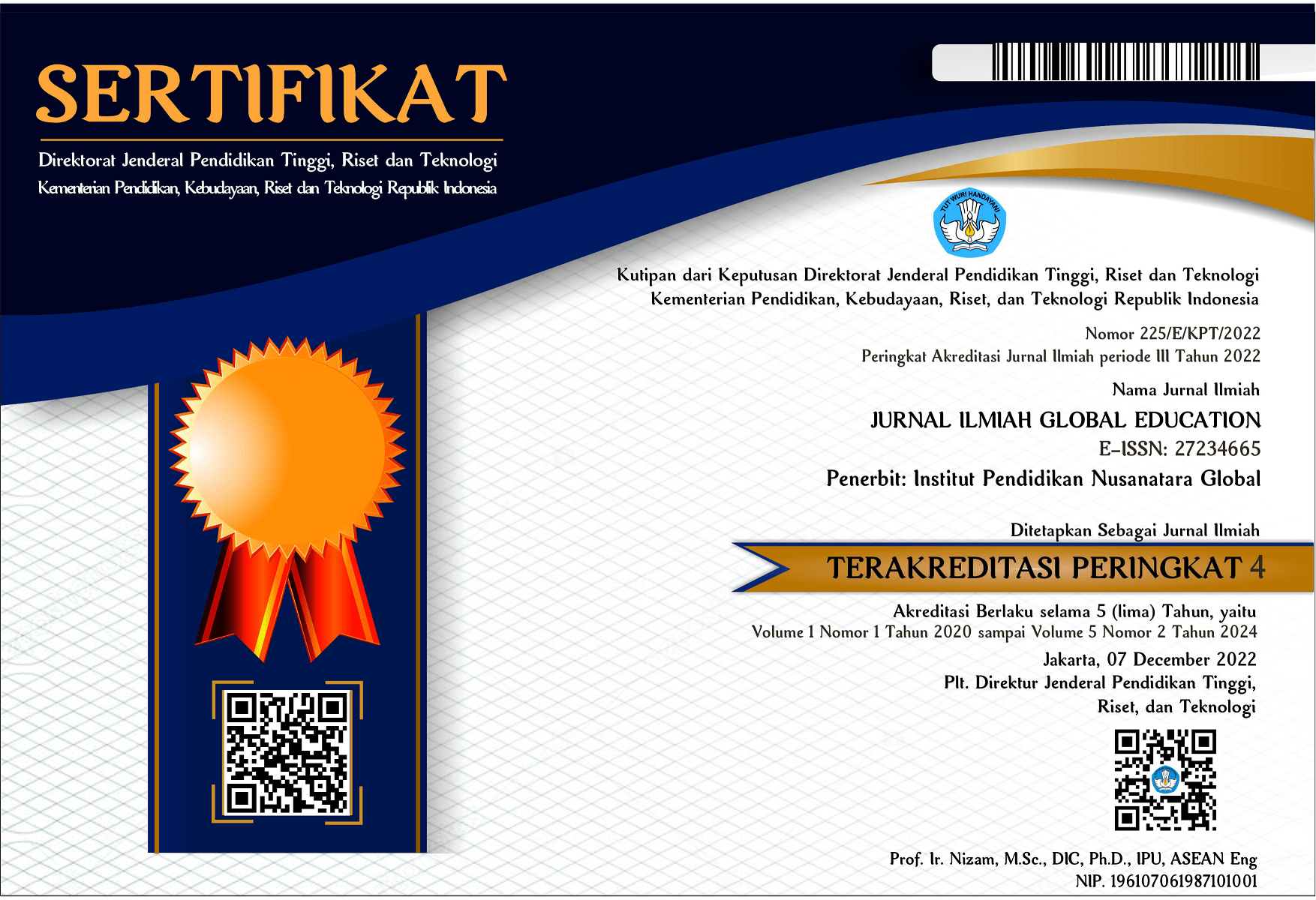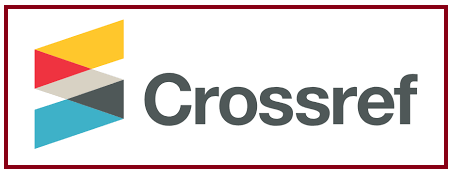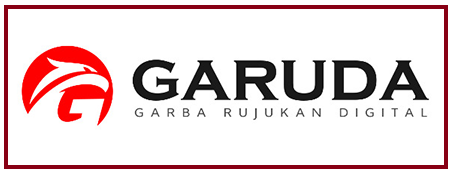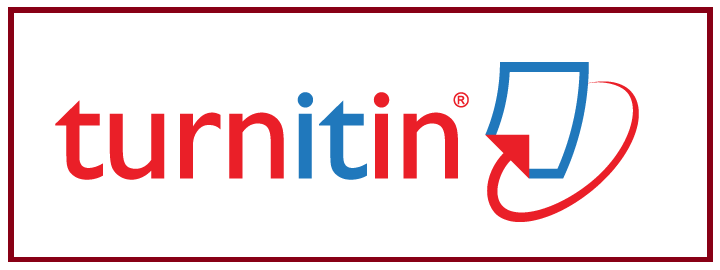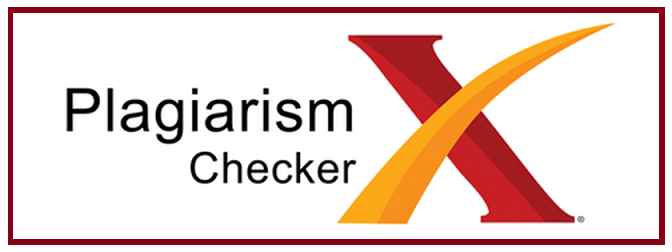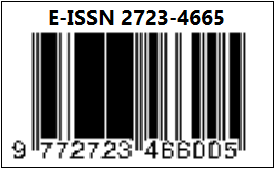Tingkat Penerapan Jurnalisme Lingkungan dalam Pemberitaan Isu Eksploitasi Kawasan Bentang Alam Karst (KBAK) Gunung Sewu di Media Daring Suara.com dan Harian Jogja (Analisis Isi Kuantitatif Pemberitaan Isu Eksploitasi Kawasan Bentang Alam Karst (KBAK) Gunu
DOI:
https://doi.org/10.55681/jige.v5i2.2845Keywords:
Environmental Journalism, Exploitation of KBAK Gunung Sewu, Harian Jogja, Raffi Ahmad’s Beach Club, Suara.comAbstract
The exploitation of the protected land of the Karst Landscape Conservation Area (KBAK) of Gunung Sewu for the construction of Raffi Ahmad's Bekizart Beach Club will have implications for the disruption of environmental sustainability and the well-being of the local community. Mass media coverage of conflicts in environmental management is closely related to the application of environmental journalism (Sudibyo, 2014). This research aims to determine the level of application of environmental journalism in online medias Suara.com and Harian Jogja in reporting on the construction of Bekizart Beach Club during the period of December 2023 to January 2024 based on four principles of environmental journalism by Sudibyo (2014): sustainability, biosentrics, environmental justice, and professionalism. The method used is quantitative content analysis by Kripendorff (2004). The results show that the level of application of the pro-sustainability principle in Suara.com is 70.84%, categorized as high, while in Harian Jogja, it is 26.67%, categorized as low. The application of the biosentrics principle in Suara.com is 56.25%, categorized as medium, while in Harian Jogja, it is 30%, categorized as low. The application of the environmental justice principle in Suara.com is 34.38%, categorized as low, while in Harian Jogja, it is 10%, categorized as very low. The application of the professionalism principle in Suara.com is 56.25%, categorized as medium, while in Harian Jogja, it is 40%, categorized as medium. Increasing supervision and journalists' understanding of the application of environmental journalism principles need to be done through training and the establishment of regulations regarding reporting on environmental issues in each mass media.
Downloads
References
Abrar, A. N. (1993). Mengenal Jurnalisme Lingkungan. Gadjah Mada University Press, 9.
Aziz, M.A. (2010). Pelaporan Masalah Lingkungan dalam Buku: Pedoman untuk Wartawan. Albert L. Hester & Wai Lan J (eds.). Penerjemah: Abdullah Alamudi. Jakarta: Yayasan Obor Indonesia.
Bill Kovach, T. (2006). Sembilan Elemen Jurnalisme cetakan 1. Pantau.
Blake, R. H., & Haroldsen, E. O. (1975). A taxonomy of concepts in communication.
Bourassa, E. (2014). A thematic review and synthesis of best practices in environment journalism. Journal of professional communication, 3(1).
Budiastuti, D., & Bandur, A. (2018). Validitas Dan Reliabilitas Penelitian. In Penerbit Mitra Wacana Media. Mitra Wacana Media. https://core.ac.uk/download/pdf/187726085.pdf
Bungin, B., Alimi, A. S., & Ma’ruf, A. (2001). Imaji Media Massa: Jendela.
B.W.S. (1972). J. N. Jennings 1971. Karst. An Introduction to Systematic Geomorphology, Vol. 7. vii+253 pp., 69 figs. M.I.T. Press, Cambridge, Mass., London. £4.20. Geological Magazine, 109(6), 555–555. doi:10.1017/S0016756800042928
Cox, R. (2013). Environmental communication and the public sphere. Sage.
Creswell, J. W., & Creswell, J. D. (2018). Research Design Qualitative, Quantitative, and Mixed Methods Approaches. SAGE Publications.
Dewi, P. A. R. (2011). Praktik Jurnalisme Lingkungan oleh Harian Jawa Pos. Jurnal Ilmu Sosial Dan Ilmu Politik, 15(2), 189–206.
Donnelly, J. P., & Trochim, W. M. K. (2000). Research Methods : The Concise Knowledge Base — Workbook. In Research Methods: The Concise Knowledge Base- Workbook (Vol. 95). Atomic Dog Pub.
García-Orosa, B., López-García, X., & Vázquez-Herrero, J. (2020). Journalism in digital native media: Beyond technological determinism. Media and Communication, 8(2), 5-15.
Hapsarie, B. (2021). ANALISIS ISI OBJEKTIVITAS BBC INDONESIA DALAM PEMBERITAAN ISU LINGKUNGAN NASIONAL VS. INTERNASIONAL. Transparansi Hukum, 4(2). https://doi.org/10.30737/transparansi.v4i2.1767
Hascarya, Lingga, dkk. (2016). Pemetaan Tingkat Lahan Kritis Kabupaten Wonosobo Dengan Penginderaan Jauh Dan Sistem Informasi Geografis. Jurnal Geografi: Vol (5) 65-72
Heryanto, H., Nuddin, A., & Halimah, A. S. (2017). Arahan Pemanfaatan Lahan Pada Kawasan Lindung Berbasis Sistem Informasi Geografis Sebagai Upaya Penguatan Ekonomi Di Kabupaten Enrekang. Jurnal Pendidikan Teknologi Pertanian, 3, 251. https://doi.org/10.26858/jptp.v3i0.5724
Hussain, S. (2017). News media and climate change crisis: towards better theory and practice for environmental journalism. Abasyn Journal of Social Sciences, 10(2), 1-8.
Iqbal, M., Saefullah, U., & Muchtar, K. (2020). Penerapan jurnalisme lingkungan Detik. com: Studi kasus berita matinya ikan paus di Wakatobi. Warta Ikatan Sarjana Komunikasi Indonesia, 3(01), 34-44.
Jennings, J. N. (1971). Karst. An Introduction to Systematic Geomorphology. Geological Magazine, 7.
Krippendorff, K. (2004). Content Analysis An Introduction to Its Methodology. SAGE Publications. https://doi.org/https://doi.org/10.1103/PhysRevB.31.3460
Larasati, S. ., & Gani, R. (2021). Penerapan Jurnalisme Lingkungan dalam Pemberitaan Media Online Lingkungan. Prosiding Jurnalistik , 7(1), 85–88. http://dx.doi.org/10.29313/.v7i1.25745
Neuman, W. L. (2014). Social Research Methods: Qualitative and Quantitative Approaches. In Teaching Sociology (Vol. 30, Issue 3). https://doi.org/10.2307/3211488
Prabandaru, L. H., Nugraha, A. L., & Sukmono, A. (2016). PEMETAAN TINGKAT LAHAN KRITIS KABUPATEN WONOSOBO DENGAN PENGINDERAAN JAUH DAN SISTEM INFORMASI GEOGRAFIS (Studi Kasus : Kec. Kejajar, Kec. Garung, Kec. Mojo Tengah). Jurnal Geodesi Undip, 5(4), 65–72.
Reynaldi, R. D., & Humeira, B. (2021). Praktik Jurnalisme Lingkungan di Media Daring: Analisis Isi Isu Reklamasi Teluk Jakarta di Media Kompas. com.
Reziana, E., & Sobur, A. (2023). Praktik jurnalisme lingkungan dalam pemberitaan pembangunan Bendungan Bener, Desa Wadas, Kabupaten Purworejo Jawa Tengah. Jurnal Riset Jurnalistik Dan Media Digital, 39-44.
Robbins, P. (2019). Political ecology: A critical introduction. John Wiley & Sons.
Sugiyono. (2019). Metode Penelitian Kuantitatif, Kualitatif, dan R&D. Alfabeta. CV Alfabeta.
Waziz, K. (2012). Media Massa dan Konstruksi Realitas. Aditya Media Publishing.
Downloads
Published
How to Cite
Issue
Section
License
Copyright (c) 2024 Yasmina Shofa Az Zahra, Herlina Agustin, Achmad Abdul Basith

This work is licensed under a Creative Commons Attribution-ShareAlike 4.0 International License.


